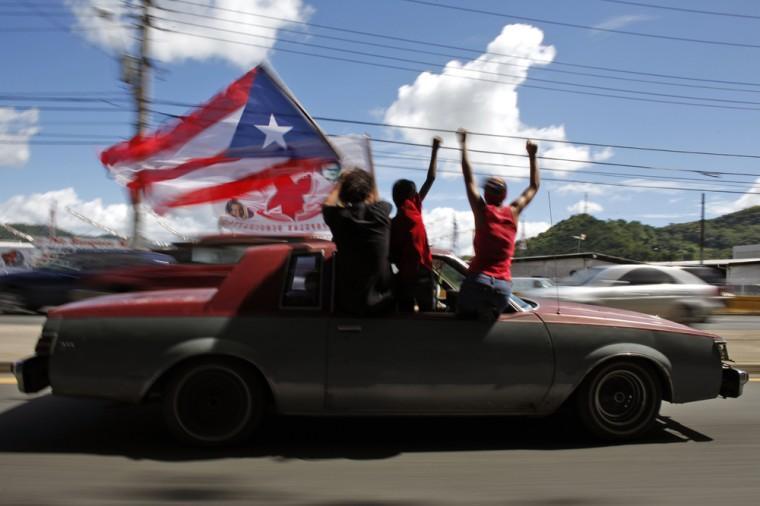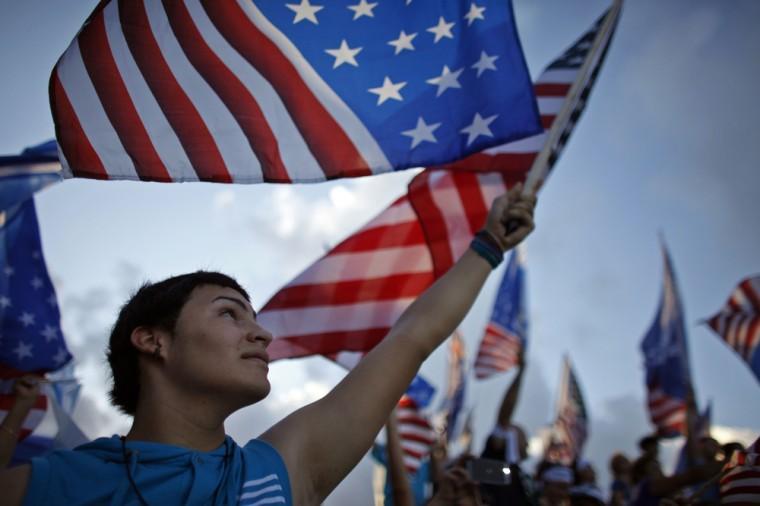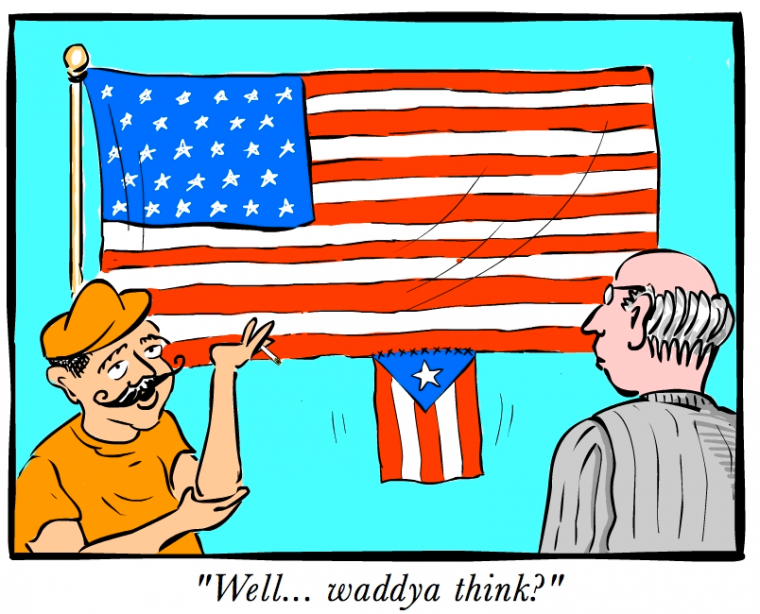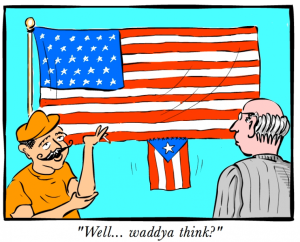On August 13th, 1898, Spain and the U.S. signed the Treaty of Paris, effectively ending the Spanish-American War and ceding the islands of Puerto Rico, Guam, Cuba and the Philippines to the United States.
Since then, Cuba and the Philippines have gone their separate ways, but Guam and Puerto Rico have remained in our American household.
Well maybe not in our American house so much as on our American veranda — but still, we’re family.
Puerto Rico has non-voting representatives in Congress, it’s defended by our military and Puerto Ricans, in turn, fight in our wars.
We’re like cousins maybe, or step-siblings.
In 1917, Puerto Ricans were granted automatic citizenship, and since 1947, Puerto Rico has existed as an unincorporated territory of the United States of America.
That’s a long time to be on the front porch, out in the elements and whatnot. But hopefully, that’s about to change.
On Nov. 6, 61 percent of Puerto Ricans voted to petition the United States Congress for entrance into our Union as the 51st American state.
Article IV of the U.S. Constitution grants Congress the right to bring in new states so long as certain metrics are met — and Puerto Rico has all the requirements.
This is the first time in 45 years that Puerto Ricans have voted to request statehood by a clear majority.
And it’s the first time since Hawaii entered the Union in 1959 that the U.S. could possibly add a star to Ole Glory.
Now there are opponents to Puerto Rican statehood — whiny conservative types — who say letting the Latino branch of the familia Americana into our house would cause all sorts of trouble.
They say the margins of this vote don’t give us a clear mandate, and they say a large number of Puerto Ricans still don’t want statehood.
Well, half of Texans still think they live in a sovereign republic — and we’ve tolerated those folks pretty well.
Besides, while 61 percent voted for statehood, only 1 percent voted for outright independence from the U.S., so the scales are clearly in our favor.
Those in opposition have also said bringing Puerto Rico in could negatively impact the economy, but as it stands today, Puerto Ricans pay no income tax. By letting them become a state, we could offset the expense by dramatically increasing the tax pool.
Lastly, opponents of Puerto Rican statehood say bringing that many Spanish speakers into the Union could fundamentally alter American culture.
If you still think that’s a valid argument, you clearly have never driven through Houston.
It’s about time we came face to face with our Latin neighbors and the rise of Central and South America as full partners on these two continents.
Having a Spanish-speaking state (other than Texas, New Mexico, Arizona, California and North Florida) could only help in that regard.
Ultimately, the most pressing argument for statehood is less statistical and more emotional.
We need this.
We, as a nation, need to know that people still want a part of what Uncle Sam has to offer, we need that new star on our flag to show ourselves and the world that the United States isn’t a has-been — we’re a still being.
Larga vida a los Estados Unidos, viva el estado de Puerto Rico.









